All products featured are independently chosen by us. However, SoundGuys may receive a commission on orders placed through its retail links. See our ethics statement.
Samsung Galaxy Buds vs. Apple AirPods (2nd generation)
February 16, 2021
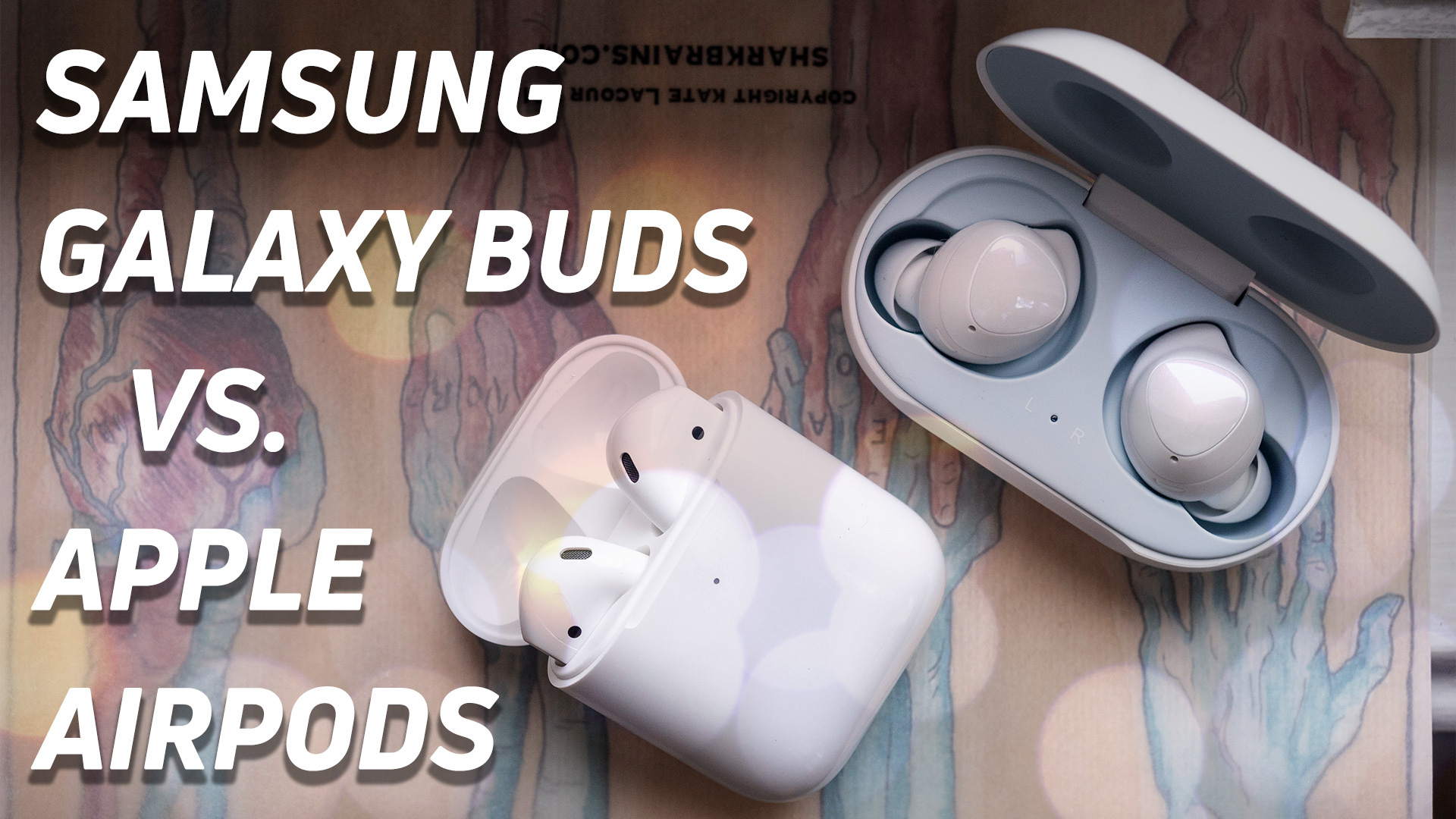
The tech world is no stranger to stark rivalries, and few are more divisive than the Apple vs. Android debate. We put Apple and Samsung go toe-to-toe with the AirPods (2nd generation) and Samsung Galaxy Buds. While we could tell you that both charging cases feel nice in the hand and that each boasts a robust build in its own right and leave it at that, we believe that when it comes to audio, there’s subjective preference and then there’s objective science. Since the release of the Galaxy Buds Plus, the Galaxy Buds have been discontinued, but this information is still relevant if you come across a refurbished pair.
Editor’s note: this Samsung Galaxy Buds vs Apple AirPods article was updated on January 6, 2023, to address the discontinuation of the Samsung Galaxy Buds, and add new alternatives.
A different approach to minimalism
Just like our Sony WH-1000XM3 vs. Shure AONIC 50 feature, we’re going to work from the outside in with this comparison, meaning hardware first. These true wireless earbuds sport starkly different designs from one another. Samsung’s have a playful, practical design while Apple applies its minimalist philosophy to the updated AirPods.
Both feature touch controls and both can be remapped and customized to your liking. The AirPods (2nd generation) have a leg up on the Galaxy Buds because of the automatic ear detection, which may be toggled on or off via your iPhone’s settings menu. The Galaxy Buds also support automatic ear detection, but our unit had trouble reliably executing this during regular use.
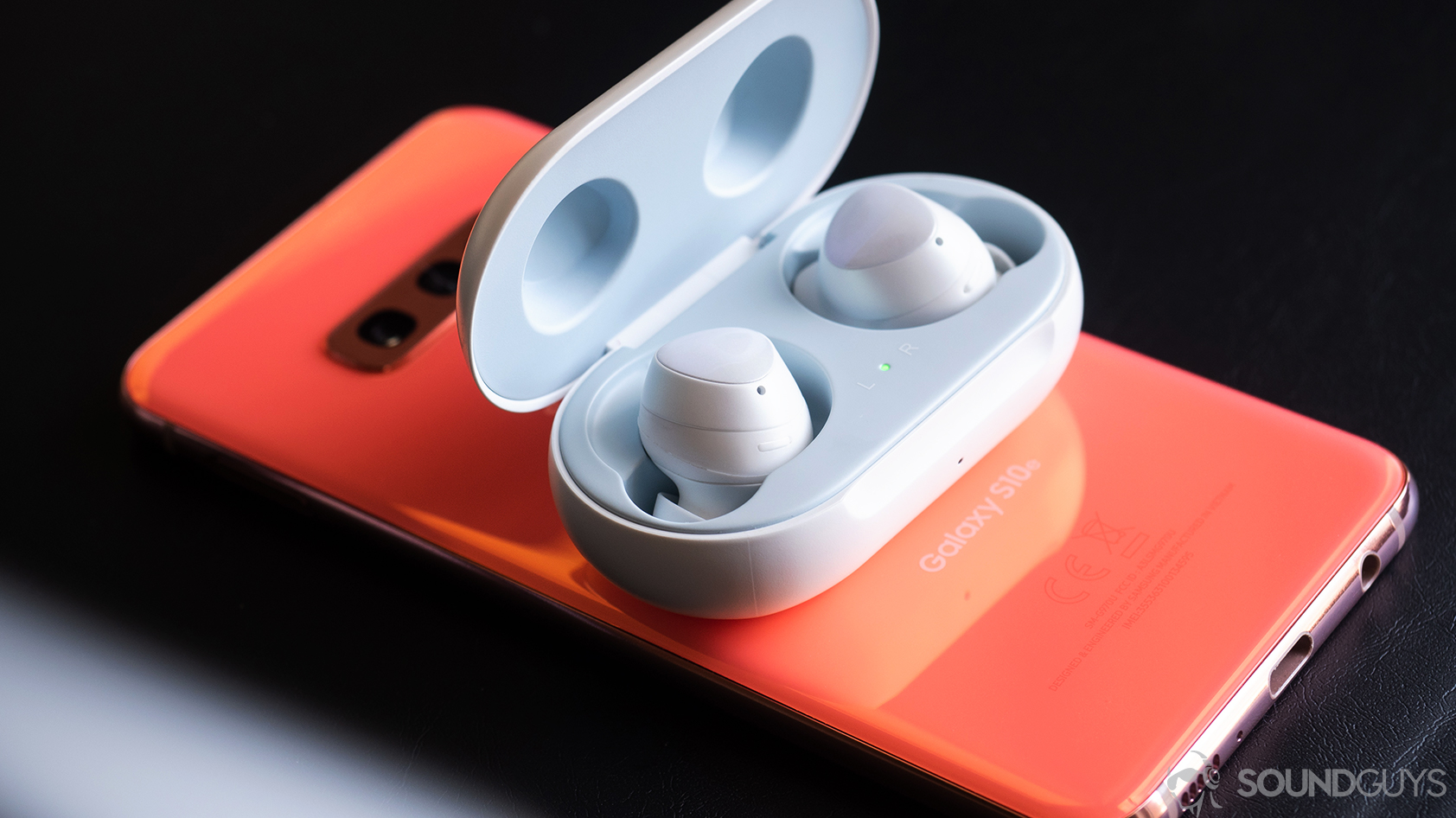
What’s more, the AirPods allow users to choose whether sound is recorded and relayed through the left or right microphone. On the other hand, the Galaxy Buds dual-mic array doesn’t let you modify recording settings. Both sets of touch controls work well, and both models allow for wireless charging. Granted, Apple’s cancellation of AirPower proved to be quite a spectacle, the wireless charging case works with Qi-compatible mats. Users will have to pay a premium for it with the second-gen AirPods as it increases the price.
The AirPods may have a sleeker design, but the Galaxy Buds provide a better fit and don't require you to pay more for wireless charging.
Samsung’s wireless charging, on the other hand, is all included and can be charged directly from any of the Galaxy S10 phones. Not only is this a neat party trick, but it’s also quite convenient and is automatically included with the Galaxy Buds.
Some may prefer the larger, relatively flat panels of the Galaxy Buds while others may be more drawn to the design of the AirPods. Ultimately, though, we tip our hats to Samsung on this one as its a better value and doesn’t hike the price for wireless charging.
Bluetooth codecs and connectivity
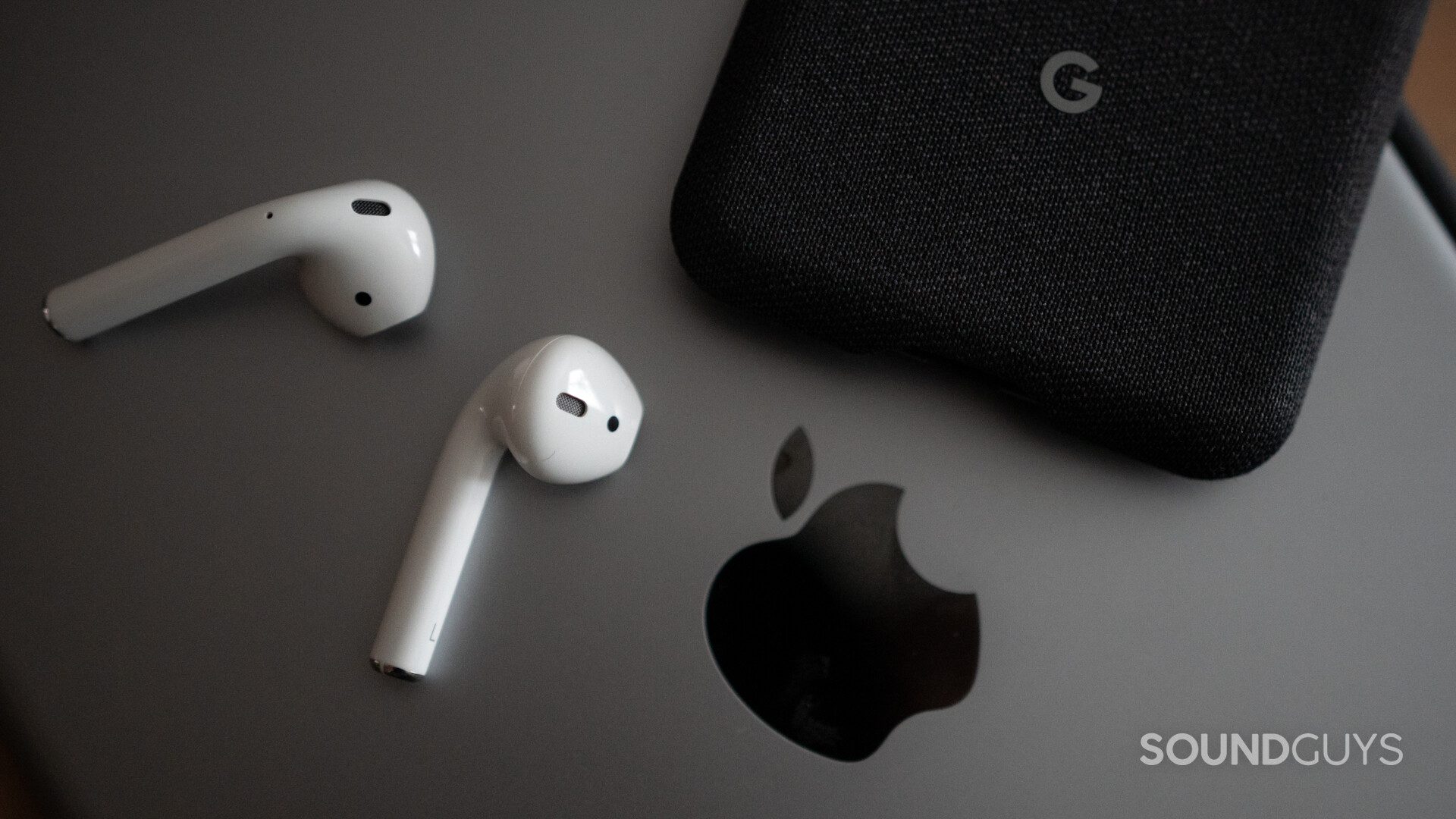
What about codec and Bluetooth support? Well, both operate via Bluetooth 5.0 and support AAC. The products diverge from here, though, as the new AirPods uses Apples H1 chip, the successor to its W1 chip. Not only does this facilitate hands-free access to Siri, but Apple claims it results in faster connecting times and lessened playback control latency. What’s more, you also benefit from a 50% increase in talk time.
Samsung's Galaxy Buds don't support aptX and are outdone by the AirPods when it comes to connectivity.
If you’re using it with an iOS device, connectivity is stable and reliable. The same can’t quite be said when using AirPods with an Android device. Although Samsung doesn’t support aptX, a bit of a misstep, it does use the company’s proprietary scalable codec. This operates similarly to aptX adaptive in that it’s constantly optimizing for bitrate without compromising connectivity.
Initial testing made it seem that connectivity was consistently reliable, however, as I’ve continued to use them between other products, it’s become apparent that the Galaxy Buds still have a ways to go. There have been multiple instances where I’ve had to completely un-pair and repair the Buds with my Galaxy S10e. Hopefully Samsung remedies this with future updates, but for now, this point goes to the Cupertino kids.
The Samsung Galaxy Buds have better battery life
This one’s pretty easy to measure. We subjected each pair of earbuds to a constant output peaking at 75dB(SPL), as we do with all headphone units, and observed the results. The new AirPods afforded 4.125 hours of playback with an iPhone X streaming over the AAC codec. While this is a tad shorter than Apple’s claimed five hours of playback, it’s 21 percent longer than the first iteration, presumably due to the new H1 chip. This is no small feat.
It’s worth commending Apple for improving efficiency, the Samsung Galaxy Buds mop the floor with the AirPods as they provide 6.53 hours of playback on a single charge. Granted, the Galaxy Buds case only provides an additional seven hours of battery life, while the AirPods’ case provides an extra 20 hours.
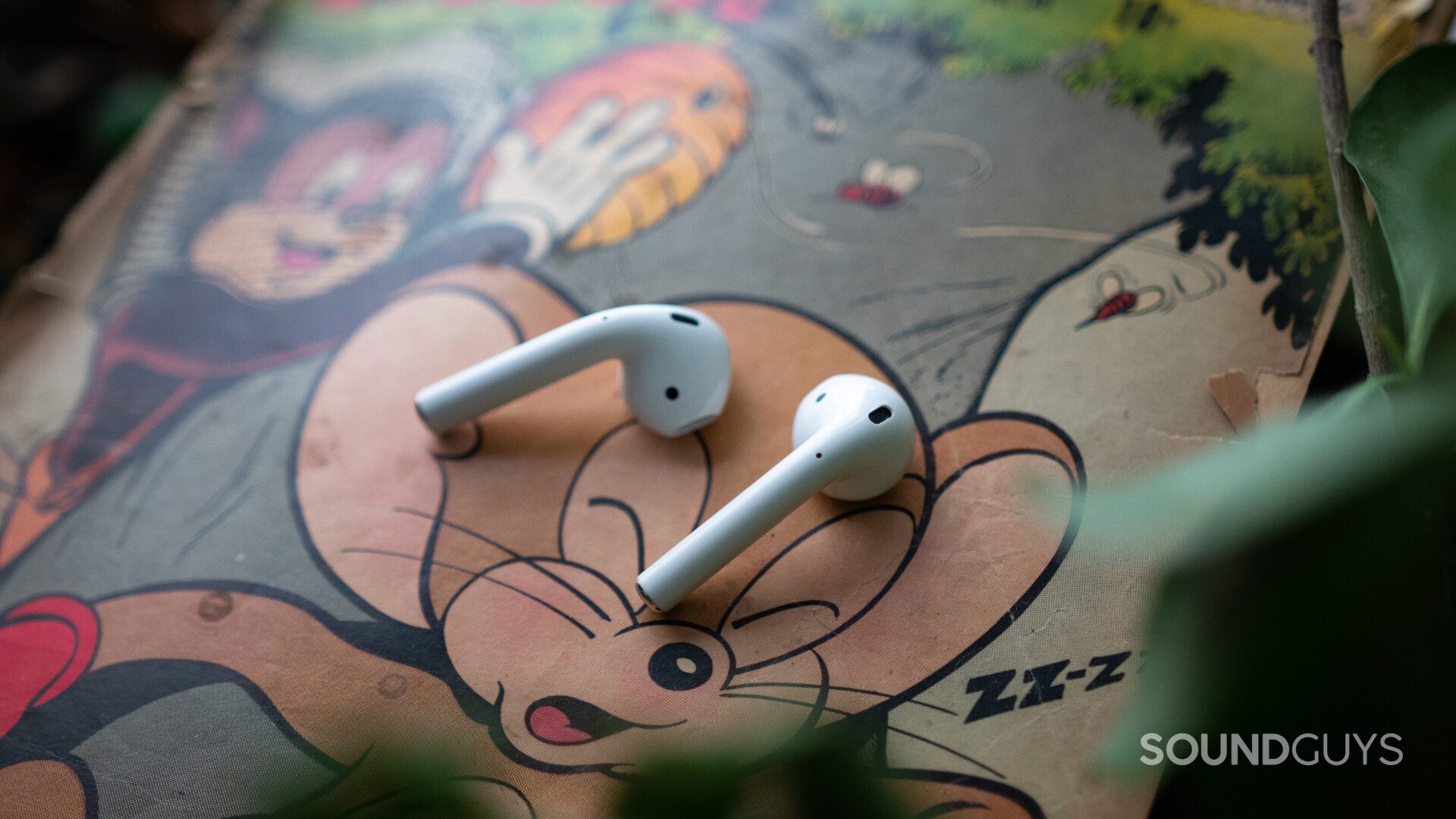
Additionally, the Galaxy Buds’ quick charging capabilities fall short of Apple’s truly wireless ‘buds. Just 15 minutes in the case for the Buds grants 1.7 of playback; however, the 15 minutes of charging the AirPods 2 results in approximately three hours of playback. Ultimately it depends on how you prioritize your usage, but as far as standalone playback goes, Samsung wins this round.
Sound quality and fit
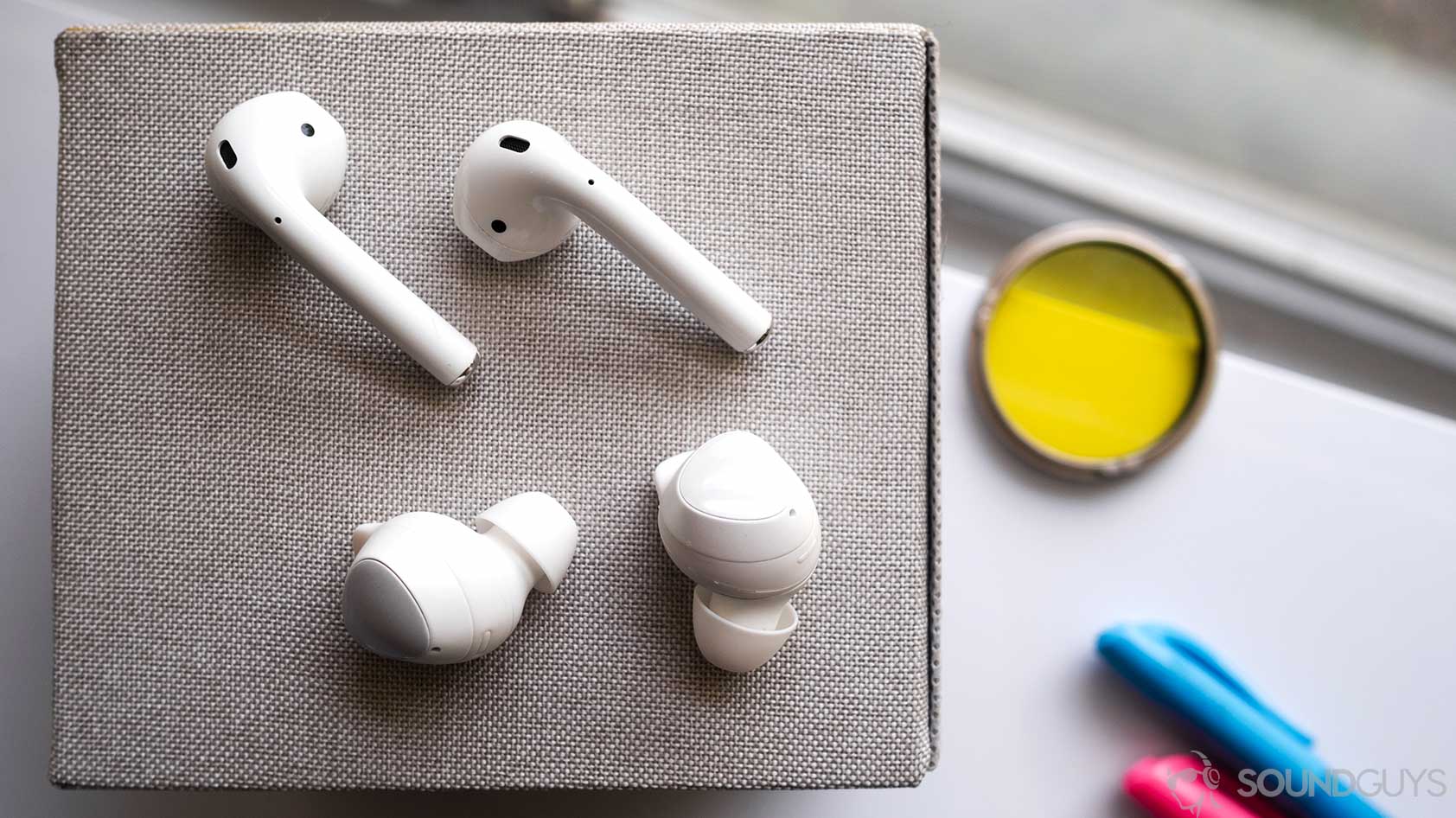
With all of this great data being collected and picked apart, it’s easy to forget that behind all the bells and whistles, these are ultimately just earbuds and pricey ones, too. Since you’re paying a premium no matter which pair you go with, it’s important that they sound good too.
Below are the frequency responses of both pairs of earbuds. These graphs depict how much emphasis is placed in a specific frequency range. The new AirPods have a more exaggerated bass response, which is a more consumer-friendly sound and necessary seeing as the AirPods don’t create a seal with the ear. Not only does this degrade audio quality but many struggle to keep the AirPods in during rigorous movement, a deal breaker for athletes.
The Samsung Galaxy Buds, though, have a slightly tempered sound signature and can be equalized in the Galaxy Wearable app. Additionally, the wing and ear tips that are directly inserted into the ear canal make for a more secure, comfortable fit.
Clarity and overall sound quality are better with the Galaxy Buds by nature of them being true in-ears that seal to your ear. Due to the solid fit, AKG didn’t have to alter the frequency response too much for the Buds to sound good.
Microphone quality
Next is microphone quality. Again, the new AirPods use a mic in each earbud, while the Samsung Galaxy buds use an adaptive dual-mic array which alternates between the inner and outer mics to greatly reduce background noise. The fundamental frequency of my voice fluctuates from 160-240kHz, which is relayed best with the AirPods as the Samsung Galaxy Buds attenuate this range. Generally speaking, the new AirPods sound much more accurate than the Galaxy Buds which tend to transmit an echo along with vocals.
Apple AirPods (2nd generation) microphone demo:
Samsung Galaxy Buds microphone demo:
Which microphone sounds better to you?
That’s right, the Samsung Galaxy Buds outperform the new AirPods
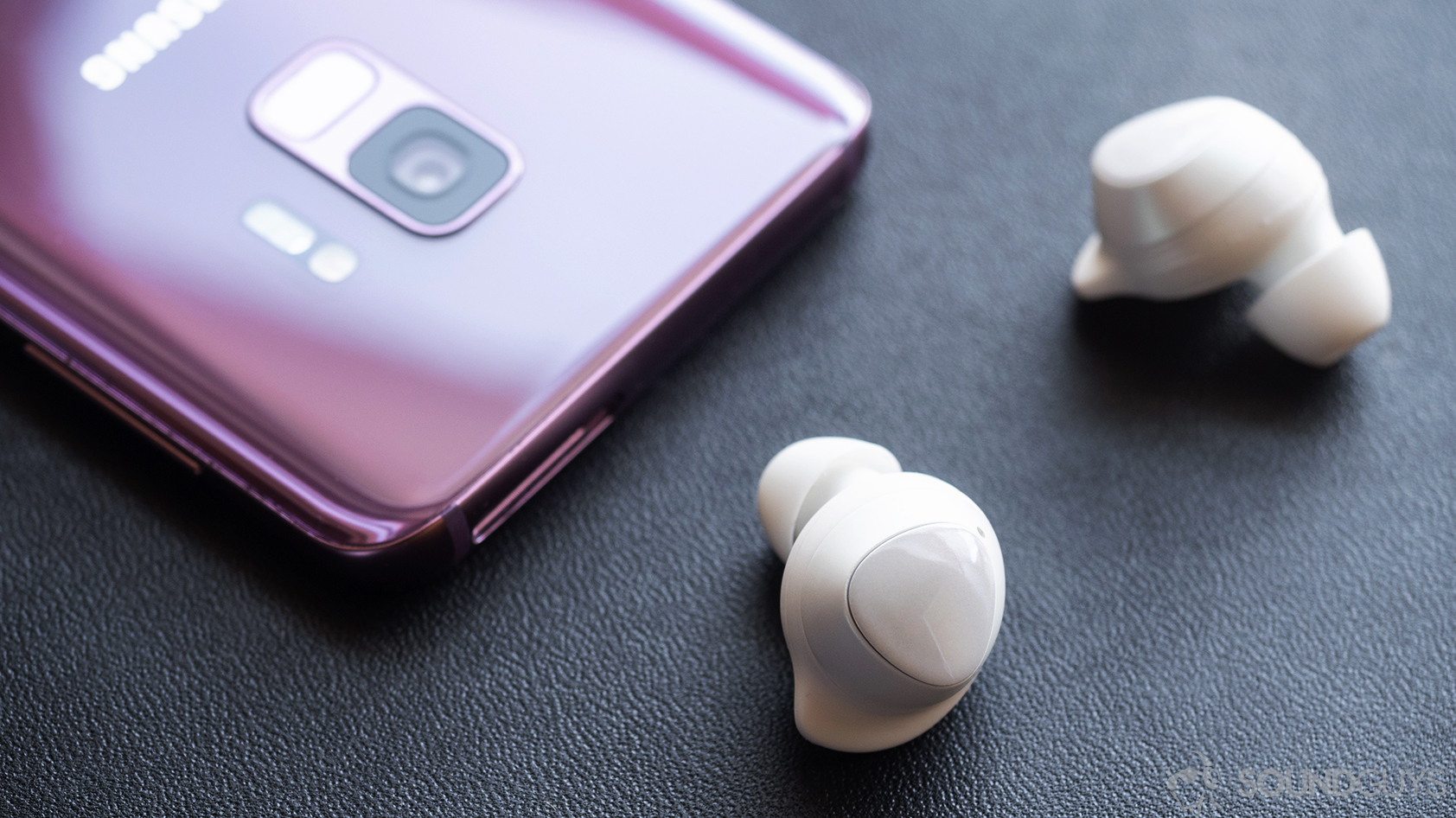
Safe to say, Samsung wins this battle, but who knows about the war? At the end of the day, Apple users will probably gravitate toward the new AirPods, while Android users will be more inclined to pick up a pair of Galaxy Buds. Again, we can talk your ears off about the data recorded but don’t want to overlook the importance of personal preference. If you like that the AirPods don’t create a cogent seal, then that may be a reason to buy, rather than avoid, them; otherwise there are plenty of great AirPods alternatives out there. However, if you want the best audio quality, comfort, and battery life, get the Galaxy Buds.


What are some alternatives to the Samsung Galaxy Buds and Apple AirPods (2nd generation)?
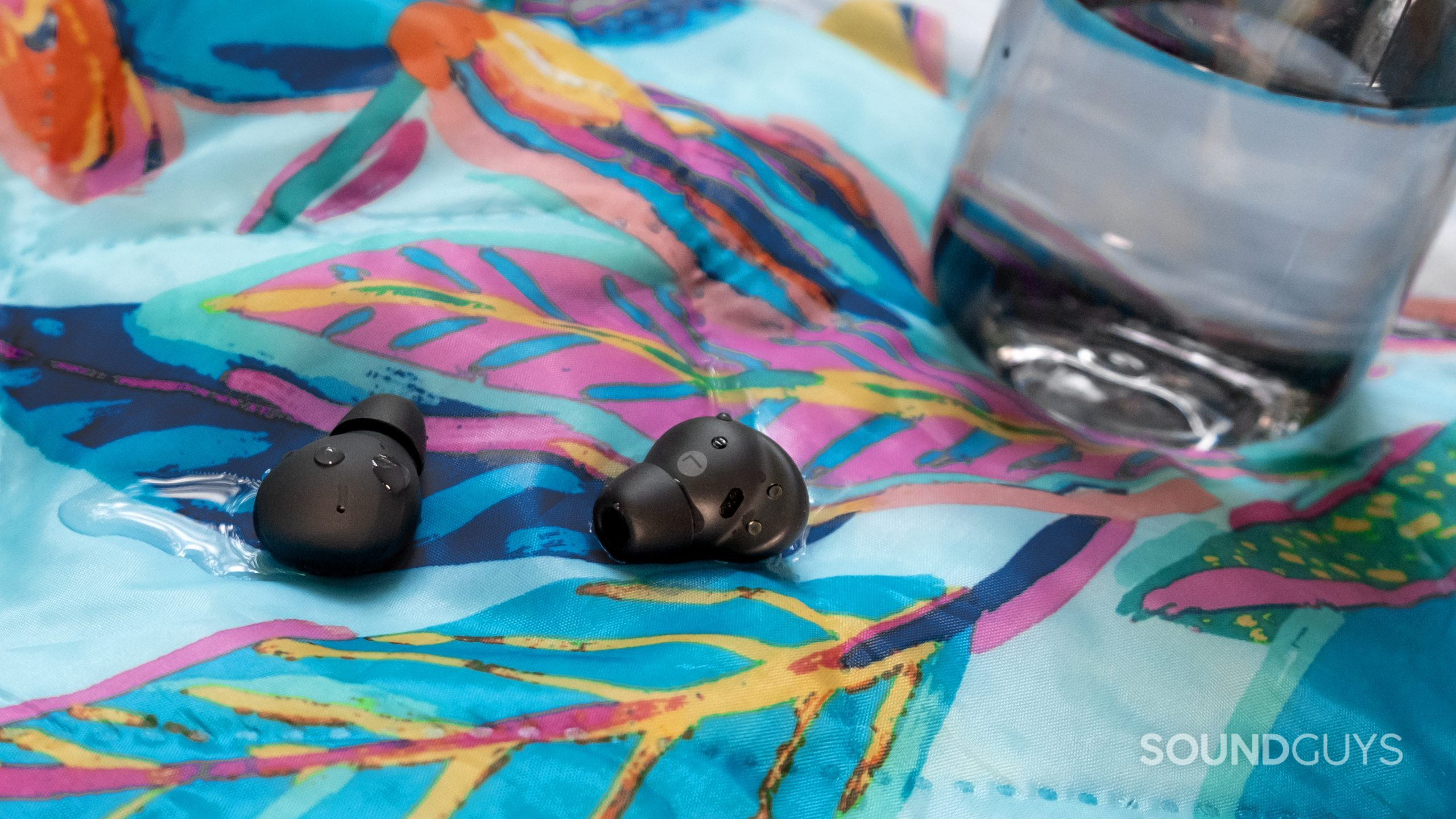
Since the release of the Samsung Galaxy Buds, there have been a myriad of earbuds that have come and gone. The newest version in the line of Galaxy Buds is the Galaxy Buds 2 Pro, which is an excellent pair of earbuds with superb active noise canceling (ANC) and sound quality, as well as support for the new Samsung Seamless Codec, so Samsung devices will have better Bluetooth audio. It’s also IPX7 rated, so it can handle water very well. You can find it for $179 at Amazon
Alternatively, you may want to consider the Google Pixel Buds Pro. It’s the newest in the line of Pixel Buds, with good sound and ANC. You’re also afforded hands-free access to Google Assistant and live Google Translate functionality. The earbuds are IPX4 rated, and the case is IPX2, so don’t worry if you get the case a little bit wet. It’s available for $199 at Amazon.
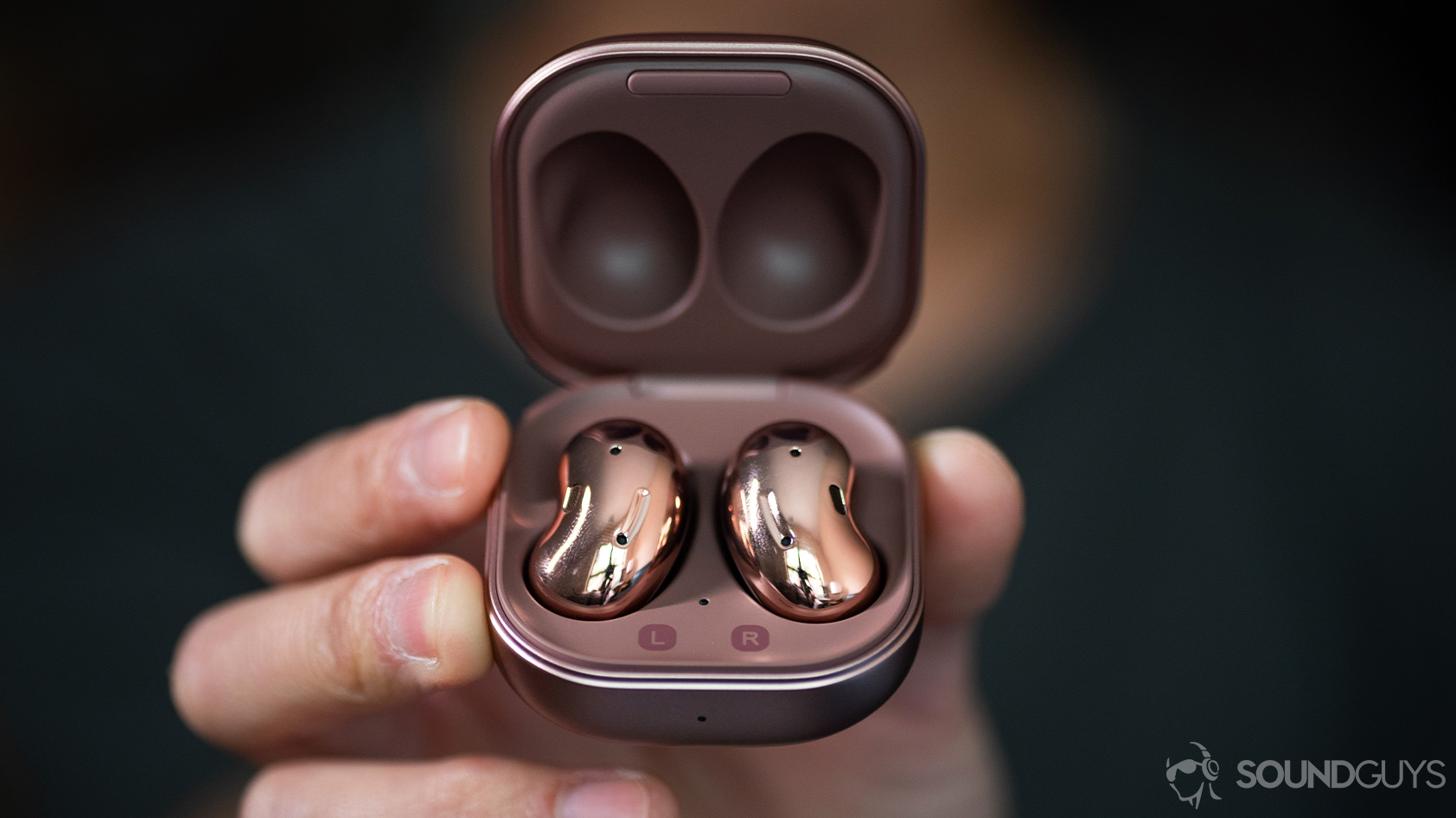
If you prefer a more unsealed fit from your earbuds, you could consider the Samsung Galaxy Buds Live. These earbuds are equipped with support for multiple audio codecs (SBC, AAC, and Samsung’s Scalable Codec), active noise canceling, and IPX2 water resistance—all wrapped in a kidney bean-inspired design. While it’s isolation performance leaves something to be desired, and its sound quality is just okay, the Galaxy Buds Live is still a worthy alternative to other earbuds in its sub-$200 price range, including Apple’s AirPods. It’s available for $89 at Amazon.
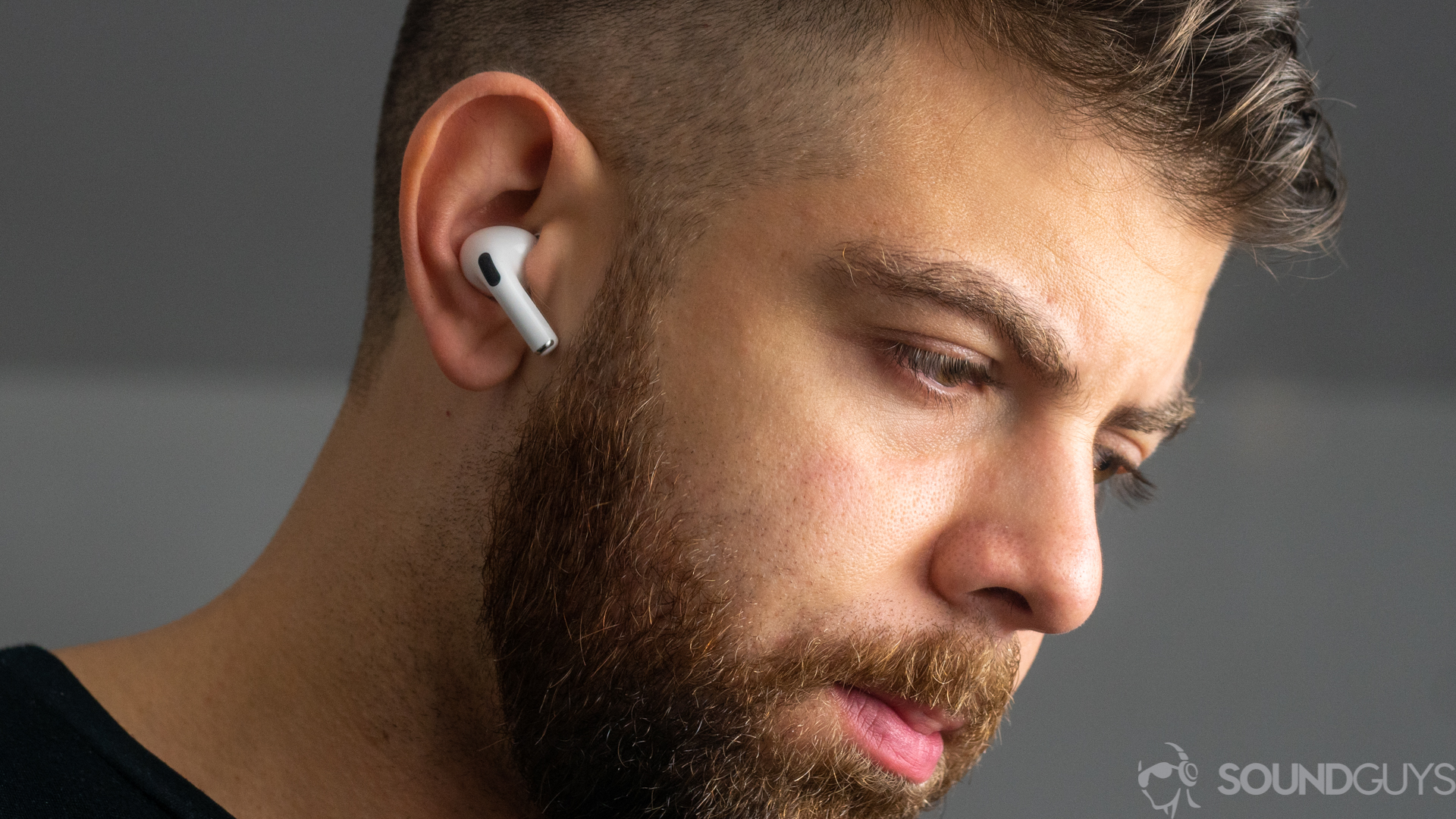
As of the Apple AirPods Pro release, you no longer need to leave the Apple ecosystem to get a secure fit and solid isolation. The AirPods Pro (1st generation) has been completely redesigned from the original and second-generation AirPods with the inclusion of dedicated nozzles, noise canceling, and a Qi wireless-compatible charging case by default. The AirPods Pro cost significantly more than Apple’s older total wireless earbuds at on the product’s website, but we feel it’s worth saving up for as they’re also more durable than ever with an official IPX4 rating to show for it. If you want to get the best sound quality from a pair of Apple earbuds, the AirPods Pro is the set to get. For a more updated version with better ANC, better Find My functionality, and more, the AirPods Pro (2nd generation) is a fantastic pair of earbuds for iOS users, available for $239 at Amazon.
Frequently asked questions about the Samsung Galaxy Buds and Apple AirPods
Unfortunately, you can’t. Firmware updates for the AirPods can only be done on an iOS device running version 13.2 or higher.
No. If you’re using your Galaxy Buds on a non-Android device, you can only update your earbuds by running the Galaxy Buds Manager app, available for Mac or PC.
Yes! Samsung Galaxy Buds connect to iOS devices like any other wireless earbud. The Galaxy Buds even support AAC so that you’re not left having to use the dreaded SBC codec.
Besides having great sound quality, a good pair of true wireless earbuds should have great battery life, a comfortable fit, and a reliable connection with your device. We explore this in more detail in an article we published a while back.
Yes, the Apple AirPods work with the Samsung Galaxy S20 and any Android smartphone. There are a few features you miss out on when using Apple AirPods or the AirPods Pro with non-iOS devices, though. You aren’t afforded any benefits provided by the H1 chip, meaning no seamless device switching or hands-free access to your virtual assistant. You also don’t get the same reliable audio quality from AAC on Android. Although Android still supports AAC Bluetooth codec streaming, its performance is variable across devices whereas its stable on iOS devices.